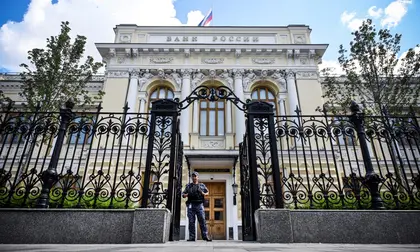Experts of the European Council on Foreign Relations have issued a detailed Policy Brief in which they summarize their forecast as follows.
- The 2024 European Parliament elections will see a major shift to the right in many countries, with populist radical right parties gaining votes and seats across the EU, and center-left and green parties losing votes and seats.
- Anti-European populists are likely to top the polls in nine member states (Austria, Belgium, the Czech Republic, France, Hungary, Italy, the Netherlands, Poland, and Slovakia) and come second or third in a further nine countries (Bulgaria, Estonia, Finland, Germany, Latvia, Portugal, Romania, Spain, and Sweden).
- According to our forecast, almost half the seats will be held by MEPs outside the “super grand coalition” of the three centrist groups.
- Inside the European Parliament, a populist right coalition of Christian democrats, conservatives, and radical right MEPs could emerge with a majority for the first time.
- This ‘sharp right turn’ is likely to have significant consequences for European-level policies, which will affect the foreign policy choices that the EU can make, particularly on environmental issues, where the new majority is likely to oppose ambitious EU action to tackle climate change.
How could this impact on the EU’s policy towards Ukraine?
JOIN US ON TELEGRAM!
Follow our coverage of the war on the @Kyivpost_official.
The authors consider that:
“On foreign affairs, such as EU support for Ukraine, the majority in the next European Parliament is likely to back a continuation of the type of financial, logistical, and military aid that Western states have been approving for Kyiv since February 2022. However, there will be a larger number of MEPs (particularly in ID and among the non-attached MEPs) who are more sympathetic towards Russia. Furthermore, support for Ukraine in the rest of the parliament might also soften as national parties start to respond to the changing opinions of their voters, expressed by their votes in the European Parliament elections.”
A wake-up call
The experts conclude their Policy Brief with the following advice for “progressive policy makers” in Europe:
The results of our analysis should serve as a wake-up call for European policymakers about what is at stake in the 2024 European Parliament elections. The implications of this vote are far reaching for the geopolitical direction of the European Council and European Commission from 2024 onwards. The next European Parliament can be expected to block legislation necessary to implement the politically difficult next phase of the Green Deal – impacting the EU’s climate sovereignty – and push for a harder line on key issues for other areas of EU sovereignty including migration, enlargement, and support for Ukraine. National governments will feel constrained by the way these elections shape domestic debates, affecting the positions they can take in the European Council. This is likely to bolster the growing axis of governments around the European Council table that are attempting to limit the EU’s influence from within – those of Hungary, Italy, Slovakia, Sweden, and likely a PVV-led government in the Netherlands.

EU Elections: Where Does Europe Stand?
These findings should also be set against the expectation that whether or not Donald Trump wins the US presidential election in autumn 2024 – and the polls currently suggest there is a real possibility he will – Europe will have a less globally engaged United States to rely on. This may increase the inclination of anti-establishment and Eurosceptic parties to reject strategic interdependence and a broad range of international partnerships in defense of European interests and values, instead seeking to pursue a more cautious approach to foreign policy decisions.
Progressive policymakers need to start considering the trends that are driving these voting patterns and begin preparing narratives that can cut through them. Rather than allowing the discussion of costs and risks in driving forward the green transition, supporting Ukraine, or de-risking in international relationships to dominate the debate, they need to craft a clearer message about the economic and security imperatives to do these things, as it is these concerns that are driving voters’ thinking.
They need recognize the nuances in European citizens’ thinking and compete politically from their own positions of strength with proactive policies, rather than resorting to the fear-driven narratives that the far right is using successfully. For example, on climate, after the supply insecurity brought about by Russia’s war on Ukraine, there is a public will to rely less on fossil fuels. After the drastic weather events affecting many EU countries and reports of worse to come, there is a desire not to lose momentum on climate action, and with the new green competitiveness framing from the US, there is a will among the business community to embrace green tech – with support from their governments to de-risk supply chains, and with investment and the right regulatory and permitting environment.
Sustaining the ‘hearts and minds’ campaign around green competitiveness as a policy choice for Europe is of course not only about narratives. Policy proposals for a just transition, in which the costs of decarbonization are evenly shared between all parts of society need to be more detailed; significantly better funded, including at the European level; and current good examples better shared among member states, to support more vulnerable citizens who are currently fearful and turning towards the far right.
While progressive European leaders cannot, and should not, tell voters what to do, they can build a credible alternative to a sharp right turn in the political mandate given to the next set of EU institutions. From the outset of 2024, they need to tell a convincing story about the necessity of reaching outward in a dangerous world.
Authors of the ecfr.eu Policy Brief: Kevin Cunningham, Susi Dennison, Simon Hix, Imogen Learmonth.
See the full document here.
You can also highlight the text and press Ctrl + Enter







Comments ( 1)
It’s about fucking time Europe woke up. The left is full of shit.